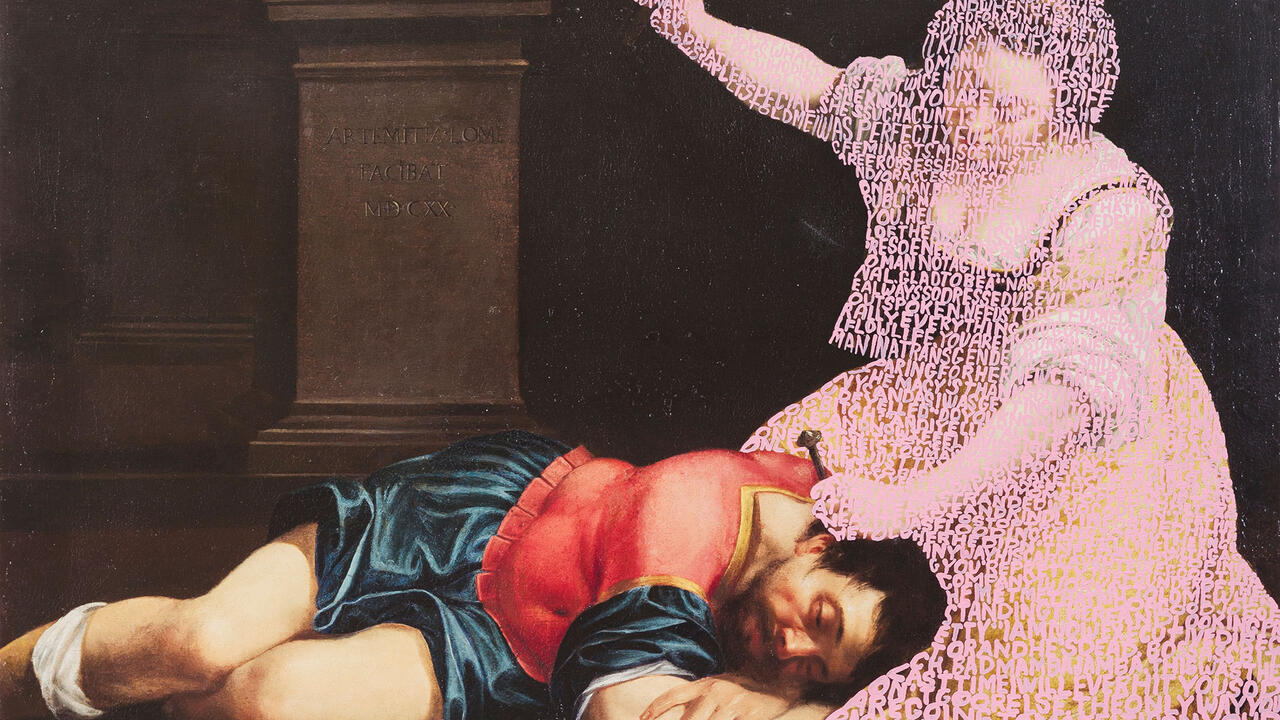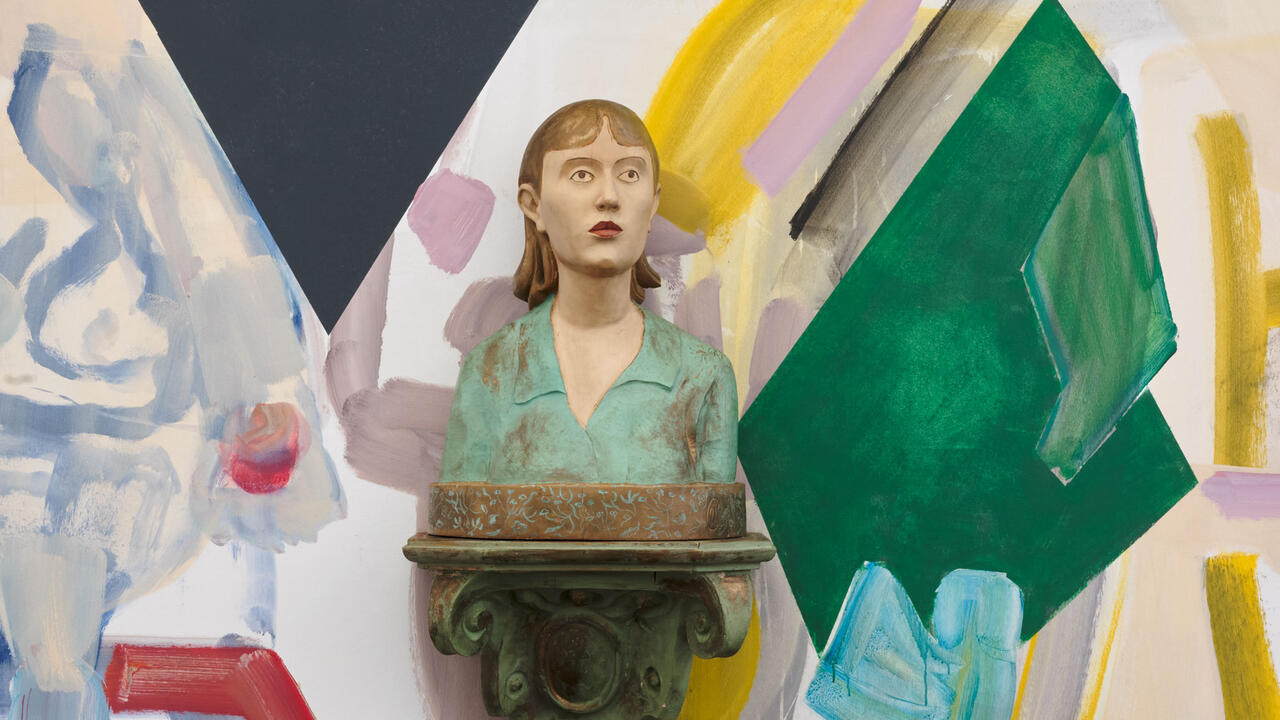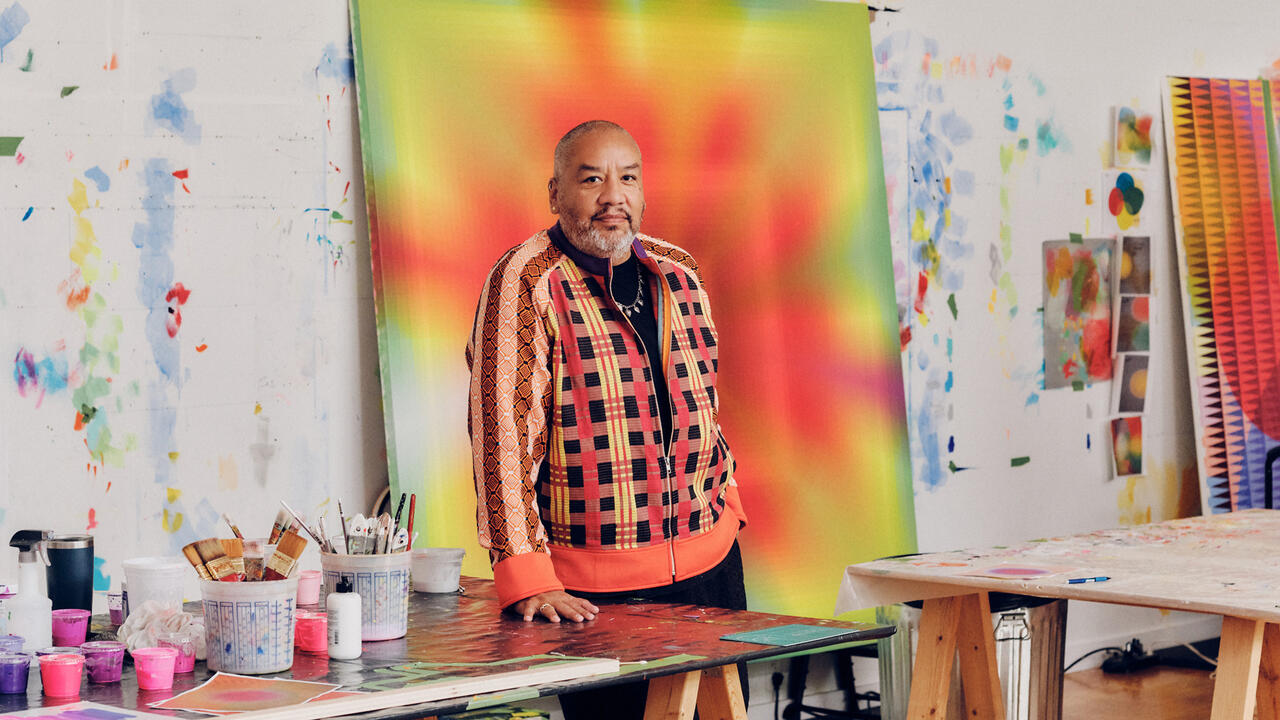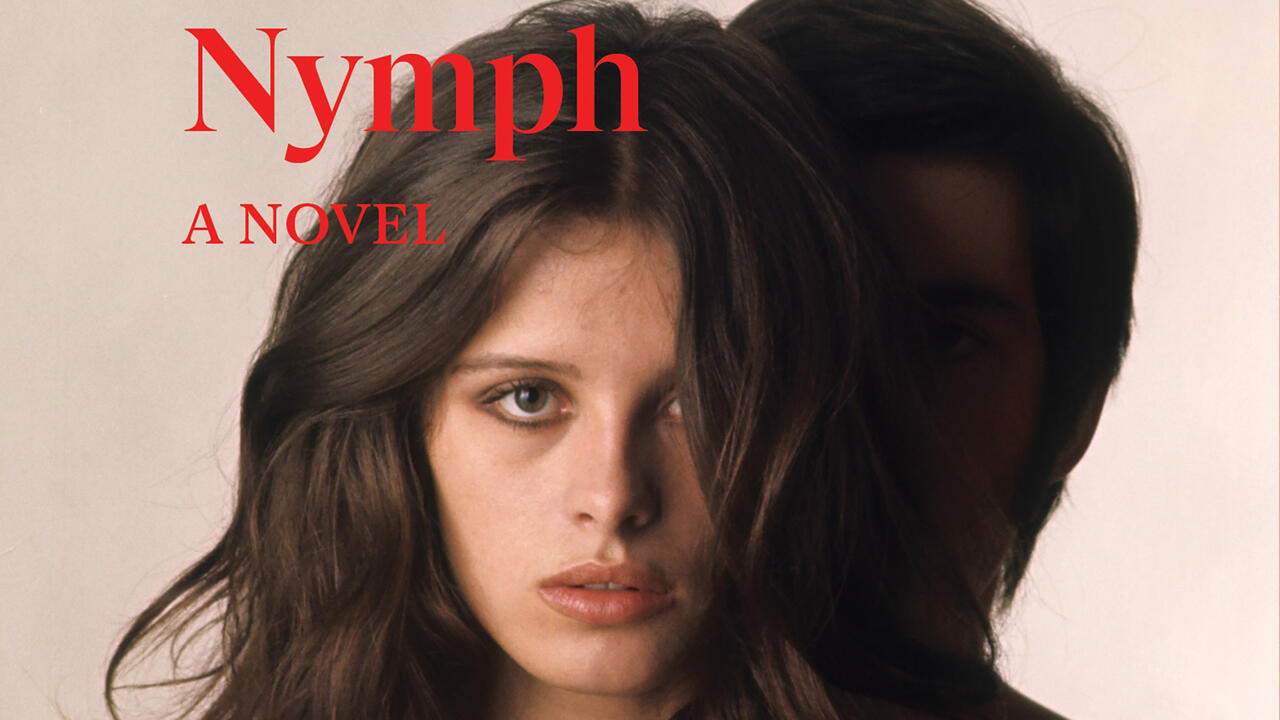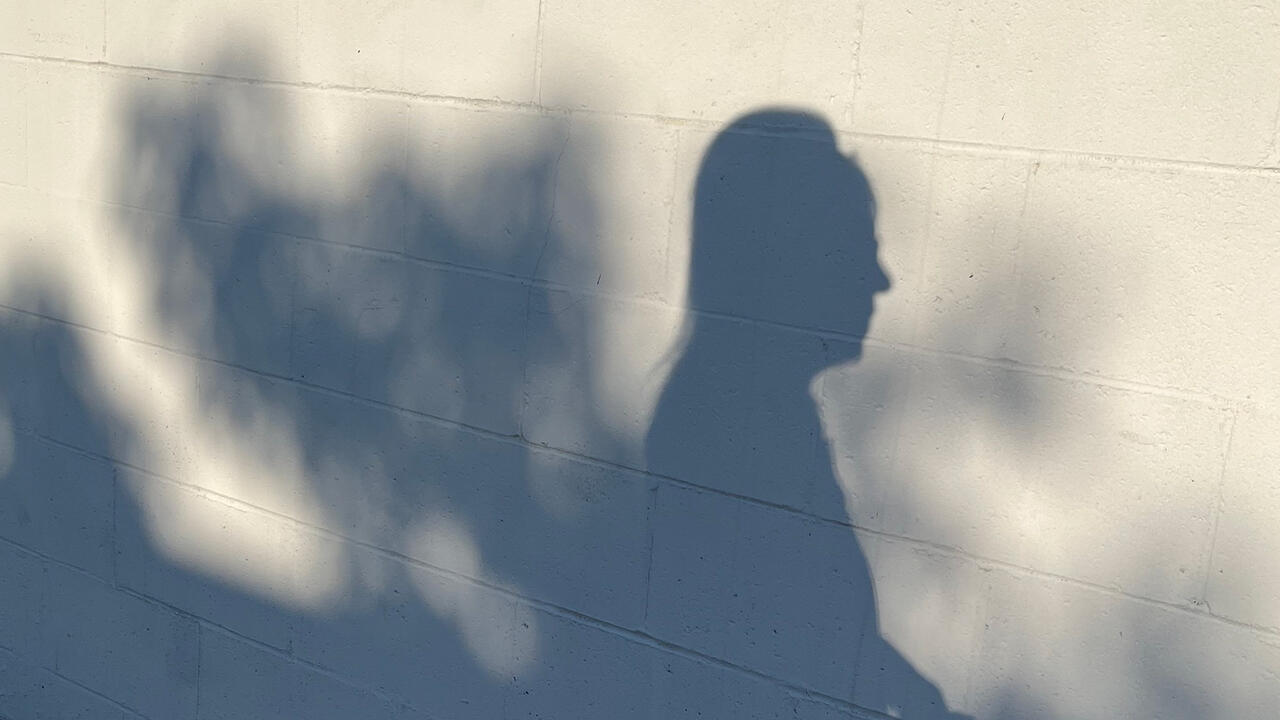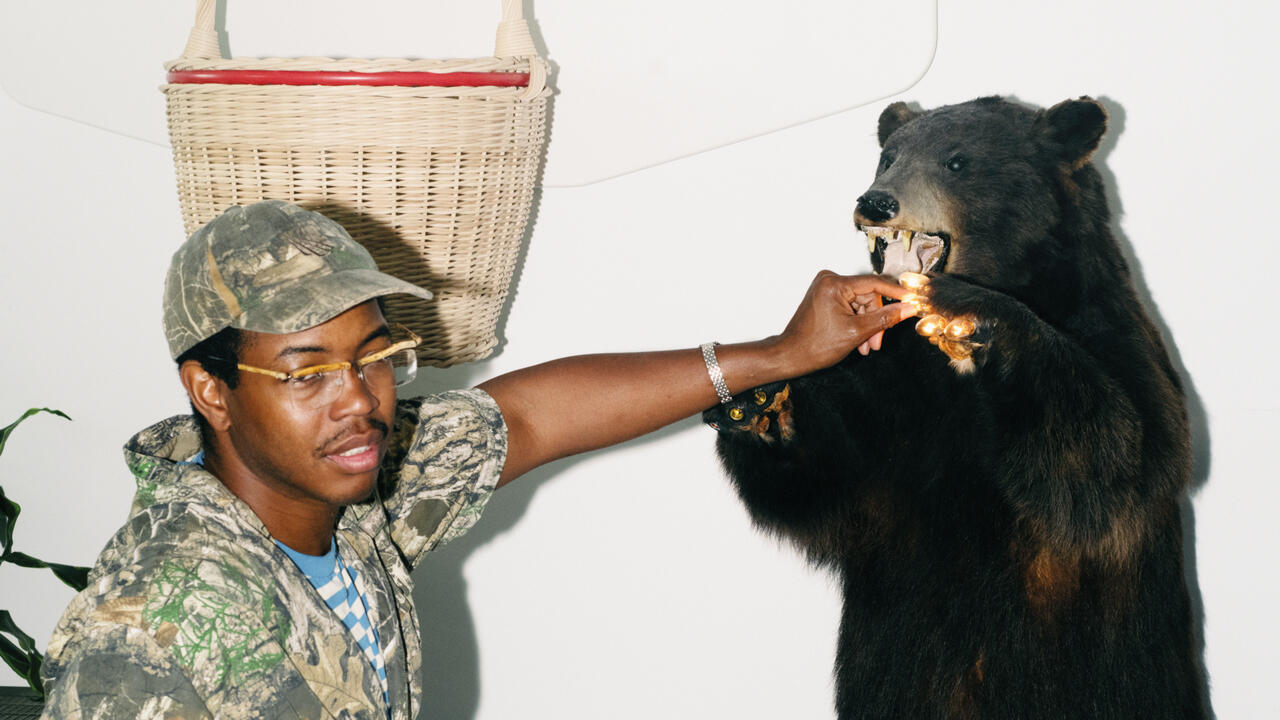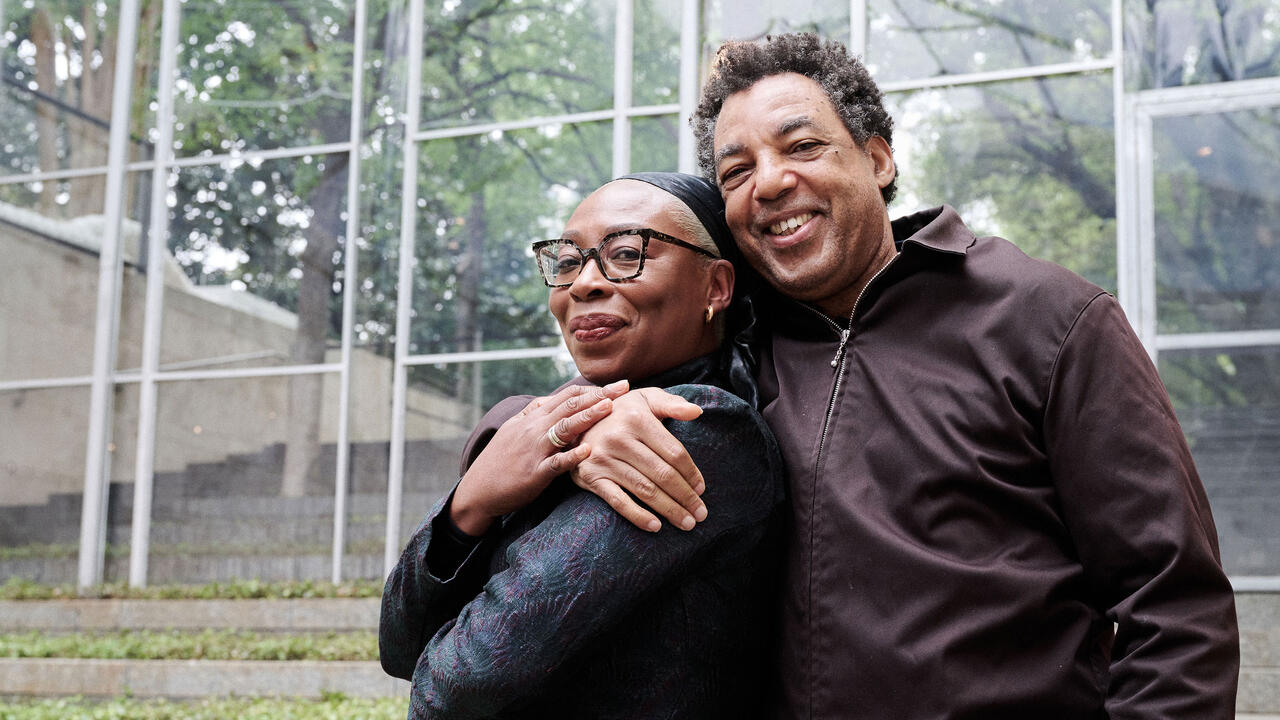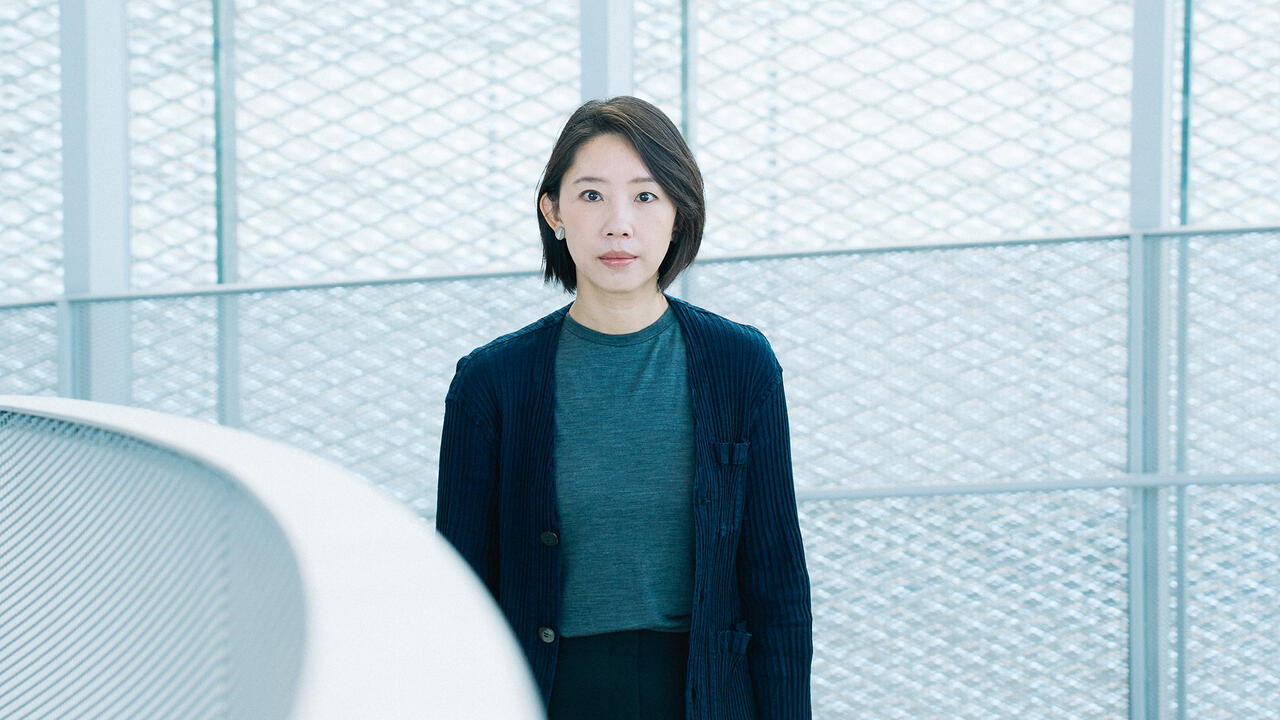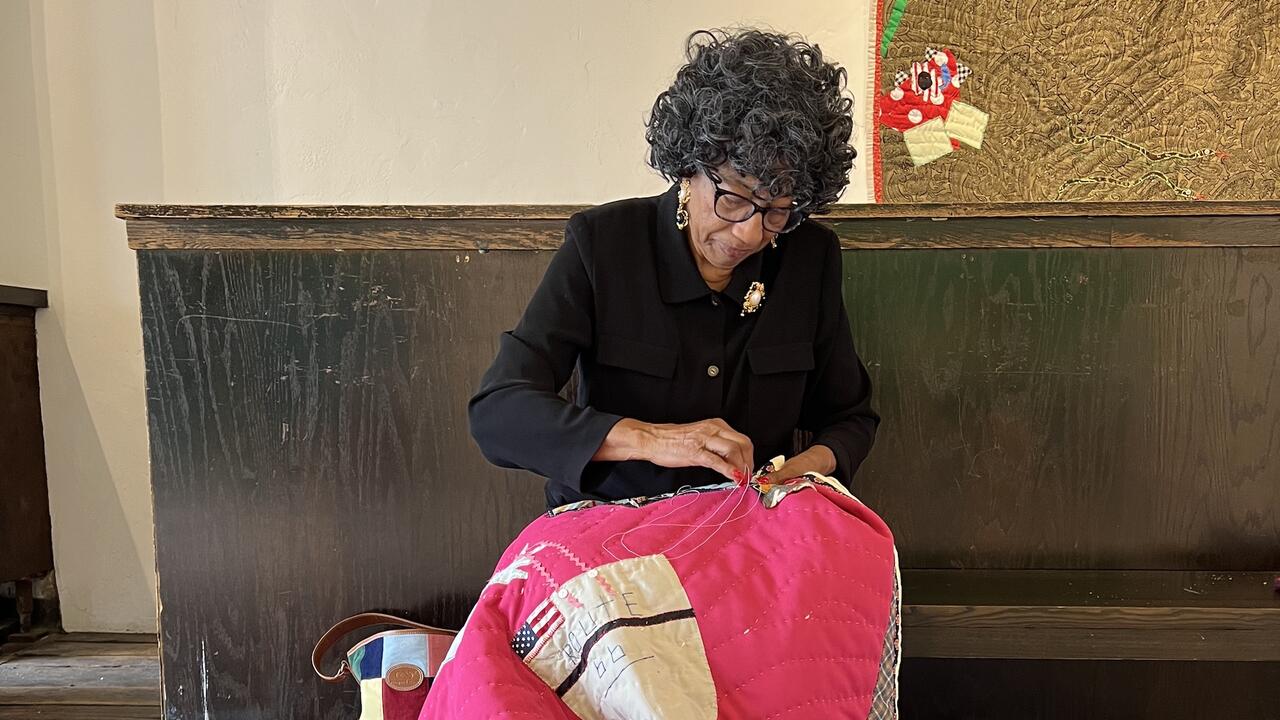Time to Tell
Cosey Fanni Tutti talks to Paul Clinton about feminism, freedom and the politics of the personal
Cosey Fanni Tutti talks to Paul Clinton about feminism, freedom and the politics of the personal

‘My life is my art, my art is my life’ is the phrase that has guided artist and musician Cosey Fanni Tutti’s deeply intimate practice, from her performances as part of COUM Transmissions in the early 1970s, through to her artistic appropriation of her own pornographic modelling and her role as a member of the band Throbbing Gristle. To coincide with the publication of her autobiography Art, Sex, Music (Faber, 2017) she talks to frieze associate editor Paul Clinton about feminism, freedom and the politics of the personal.
Paul Clinton You’ve published poetry and experimental writing and Throbbing Gristle were influenced by avant-garde literature. Did you consider writing your autobiography as something other than a straight narrative?
Cosey Fanni Tutti I did, but the circumstances of my life dictated that I write the truth. I didn’t want it to be analytical or academic to prove a point. Credit for certain things also had to be redressed as well as the overarching impression that COUM and Throbbing Gristle [TG] were one person, which they weren’t by any means. The only way to do that was within the narrative of my life. It’s not that it annoyed me. I just thought, there’s an inaccurate history being made, and through my diaries, I could locate the time, place, the feeling, and if it contradicts something that’s out there, it should be corrected.
PC One theme in the book is your need to be true to yourself, but another is your need to invent yourself as Cosey. Isn’t there a conflict there? Did you ever feel like you’d lost something when you rebranded yourself as Cosey?
I don’t think I have moved away from where I came from, in Hull, which was a pretty full on place to grow up in. You had to fight for your place in that town. I am not ashamed of anything I’ve done, or the things that have been done to me.

I do bare myself in my work but it’s the feedback from that which interests me. I think I explain it quite well in the book: I wasn’t Christine and I wasn’t Carol, and later I wasn’t Cosmosis [the name Genesis P’Orridge gave me]. People started shortening that and calling me Cosey, because that’s how they related to me. Fanni Tutti was added through making mail art. I like the fact that I’ve created an impression of myself upon other people that I can then adopt because that’s who I am at that moment, with you. I credit the people that called me whatever they did, but it was my decision to call myself Cosey. I could have rejected it, like I did the name my parents gave me.
PC Collaboration is a constant in your work, but you’re not sentimental about those relationships. You describe how, in COUM Transmissions in the 1960s and ’70s, sexual liberation was fine when it came to orgies but got forgotten when it was time to do the washing up. Did that feeling of being being side-lined as a woman ever make you lose faith in your exploration of sexual liberation?
I do bare myself in my work but it’s the feedback from that which interests me.
CFT No, because my sexuality is mine to define. I didn’t see myself as different from the blokes I worked with, though they obviously saw me differently. That’s one of the reasons that I wrote about my childhood in the book. My dad focused on me as the son he never had and brought me up as a tomboy. The best thing about that was that I felt equal.
Working and cooking for everyone in COUM, was part of my survival. It wasn’t a service to the men. That’s not how I thought of it, until I’d get pissed off and think, what the fuck are they all sat around for? But I was just too busy surviving, to start thinking about women’s liberation. I didn’t think I needed liberating. I was doing everything my own way.

PC A lot of your work deals with feminist ideas – subverting the male gaze in pornography etc. – but in the book you write that you identified more with gay liberation. Why?
CFT Gay liberation was more free-thinking about sexuality and, like me, gay people had to fight for their identity. They were open to me as a person, rather than sympathetic towards me for being a woman in this society. The freedom to be as a person, rather than as a man or a woman is what I hooked into.
It’s about liberation. The fact they tagged it gay in the front – they had women’s liberation first. I still think that liberation is the way it should be, because it embraces everybody. People have the right to define themselves any way they want; that’s a given right. It’s about being free, and that covers all aspects of sexuality, gender, race, everything.
The freedom to be as a person, rather than as a man or a woman is what I hooked into.
PC Do you think class was a factor in the very unequal division of labour you describe in COUM and TG? Both you and Chris [Carter] seemed to do a lot of the hard work, whereas Gen – the middle-class dropout – didn’t.
CFT I do, because Sleazy was middle class and went to boarding school as well.
PC And was always turning up late.
CFT Chris always says, when people do that, it sends you a silent signal that their time is more valuable than yours. But Sleazy was such a beautiful person, you’d just keep forgiving him. Gen was different. He was a day boy [someone who attends private school each day but lives at home] so still, they had that middle class education that gives a sense of entitlement over and above the working classes. There’s a tendency for people like that to look on the working class as a source of material: they are access to real life and real art and that annoys the fuck out of me.

PC Did you feel that was playing out within COUM and TG?
CFT Yes, because you get the real-life experiences that created the phrase Throbbing Gristle, and other terms which fed into COUM.
PC You don’t hear those in the dinner party circuit, do you?
CFT You don’t, and you don’t hear those terms ascribed to who or where they came from. It’s like they just appeared from nowhere, but they didn’t. You had to get down and dirty to even find those expressions.
PC There was a certain art world condescension towards COUM. I get the picture of a scene full of supposedly Marxist art groups in the ’70s who were nonetheless dismissive because you were untrained artists.
CFT I never expected any different. Gen embraced it, because he had dropped out, and had a credential because he’d gone to university and rejected it. I didn’t even have that as my one rung up the ladder for credibility with the art world. It didn’t bother me. I was doing what I wanted to do.
To confess something you must deny something first, and I’ve never denied anything.
But within that, many artists realized that they didn’t have to adhere to what they’d been taught, even if they were middle or upper class. The Kipper Kids were amazing. They got down and brutal and I never see class in their works at all. Not everyone was so true to their purpose. There was whatever was up front, and at the back of their mind, was a little career flag waving all the time. I was quite good at sniffing out bullshit.
PC The autobiographical references in COUM performances were quite oblique, but in the album Time to Tell and this book you seem to have moved steadily towards overt self-analysis or confession …
CFT I think it’s self-realization rather than confession or analysis, because analysis implies that I’m trying to find something. It’s actually more that things get revealed, suddenly a light comes on, ‘yes, now I know why’. And to confess something you must deny something first, and I’ve never denied anything. That’s probably what got me into trouble, being too direct.

PC Was it a difficult process, going back to those diaries? Was it more emotionally difficult than assembling the objects for the COUM exhibition in Hull?
CFT They fed into one another because I was walking the same timeline in both. I knew, curatorially, what should be displayed to give the proper story of COUM, because I’d already been working through my diaries. For the show I also made the video COUM Talks, with former members discussing their experiences. That was important for me, hearing their take on it.
What was difficult was presenting events that every feminist reels against, the treatment that you undergo by men, because I was aware of the fact that I’m seen as a strong woman. That’s why I kept the voice of who I was at the time, because no one is born a feminist. I wanted to show that being a strong woman doesn’t mean that you don’t go through rough patches with men and it doesn’t mean that you handle them by walking out or confrontational retaliation.
What was difficult was presenting events that every feminist reels against, the treatment that you undergo by men.
PC Did you ever feel that funding COUM and later TG from your pornographic work compromised your claim to appropriate and gain self-ownership of the modelling?
CFT Like someone was pimping me, you mean? It didn’t occur to me at all. It was a project and whatever it brought to me or COUM, fed in not just as cash but as experiences and ideas. The money was useful, obviously, but I was never sent to work.
Some members were leaning on the state, and that was hypocritical: you bash the system at the same time as you say thank you very much for the handouts. I didn’t like the state telling me what to do. Having my own money was a huge deal for me. It stems back to when I was thrown out of home, and needed that security to survive and be creative.
PC Did you feel like you were leaving part of your work behind as you shifted from art making in COUM to making music in TG?
CFT No, because it was like music I’d never heard before. Playing Dixieland drum kits and music concrete … it’s all very well but it’s been done before, and better than we did it in COUM. I wanted to create my own music and TG was the first time that had ever happened, and that was through Chris.

Gen was always was more interested in music. He started moving away from the art performances, but I was just beginning as an artist because I was making work on my own with the sex magazines.
PC Gen always maintained that TG wasn’t a political group. Did you deliberately try to avoid a clear ideology?
CFT Because you take risks and you challenge, those ideas are shifting all the time. How can you define a group when you want to go beyond definitions? You’d be confining yourself too much. The only way that you’re going to move forward is to push past boundaries and false walls of expectation. Both TG and COUM had a very similar ethos: no rules, no boundaries, anything is material. Anything that hits our radar, we’d see what we could do with it.
PC The album Jazz Funk Greats pushed back at your industrial image to something lighter. Did your reputation as transgressive feel just as limiting as anything else?
CFT No, that didn’t bother me until 1987, in Amsterdam when I did my last art action – although I’ve done some others since. The audience was clearly waiting for me to strip off and that was the first time I thought, I’m not going to do it. That was working against my transgressive reputation. I thought, fuck you, I’m not going to do what you expect me to do. The whole action became an exorcism of that expectation, of that past.
PC Your relationship with Gen, the violence and manipulation you were subjected to, is a major theme of the book. How aware do you think Gen was of acting that way and how aware were you?
CFT The manipulation was well-disguised, but I wasn’t unaware of it. I worked within it to make sure I could still carry on and be me. I succeeded. Women are well-equipped for working against manipulation. That’s what everyone should have a better understanding of, especially my generation of women. We’ve had to work around sexism and misogyny and that makes us strong.

PC Do you ever feel like you’re done with exploring the personal in your work?
CFT No, because it’s metamorphic. I don’t see the point in rehashing past performances, but referencing and reworking is what I’ve always done. You also see things differently in retrospect. Looking at my pornographic modelling I think, yes, that was my action, but it’s much more interesting within the context of a whole magazine. That’s why I frame entire photo spreads, because you get to glimpse the whole world that I inhabited to make them. You see the other girls, the ads, the articles written to get guys excited and ready for the photographs. It reveals what I went through.
PC You’re much more ambivalent about the strip-tease work. Was it aesthetically jarring to find yourself dancing to pop songs?
CFT As with the magazine work, I researched it. The Arabian Arms pub in Bethnal Green, London, used to have topless dancers and I’d go and watch them. I had to fit the purpose, so I couldn’t just dance to TG, because I wouldn’t have made any money for myself or the agency I worked for.
When the two worlds crossed over, that was weird. In a pub off Oxford Street a guy came up and said, ‘you’re from Throbbing Gristle. Will you sign this?’ I was dancing there as Scarlet, my stripper name. I wasn’t Cosey. I’d been naked in the art performances, so what’s the difference? But I didn’t like that at all because they were looking at me like a naked TG member.
There are damaging aspects of the sex industry but I don’t think destructiveness is inherent in making porn.
PC In writing about the risk of exploitation or the threat of violence when stripping – were you worried about reinforcing a view of pornography as inherently damaging and anti-feminist?
CFT It was better for me not to think about that if I was going to give an honest account. I’m not going to lie to keep some feminist theory on track. The feminist struggle involves all these things: why do some women feel that they’re free to explore their sexuality, display themselves in public and make pornography? They’re answering different urges within themselves that other women don’t feel, and neither position is right or wrong. Aspects of the sex industry are totally wrong, when it’s not consensual, but for a woman to be free to do what she wants with her body, doesn’t necessarily feed into the objectification of women. It depends on who you are and what you want to do with those images.
Feminism has to allow freedom of expression. As long as it doesn’t cause harm or degrade people, which they say, pornography does, but again it depends on what you want to do. If you’re highly sexed, and you enjoy using pornography, loads of women are doing their own porn now. There are damaging aspects of the sex industry but I don’t think destructiveness is inherent in making porn.

PC In the late-’70s, during TG’s most active years, punk was also around, but you’re pretty ambivalent about it in the book.
CFT It was rock and roll in its basic form, and they were boy bands selling clothes for the two shops, Seditionaries/Sex and Boy, on London’s Kings Road. I’m cynical because I saw how those bands were manufactured. Punk was American first and foremost, and that probably had more currency than UK punk. I couldn’t afford the bondage trousers in Seditionaries or Boy, so how punk is that?
PC You write about David Medalla’s influence on COUM, even though you were unaware of it at the time. How did you find your influences if you didn’t go to art school?
CFT I was with art students and musicians before I even met Gen, so my life in Hull was already on the fringe and I was seeking pleasures of all kinds: drugs, music, art, everything. By the time I met Gen, and the other members of COUM we were all primed with information. I brought in the real life, I think.
I had no idea that so much of what COUM was based on Medalla’s art commune Transmedia Explorations. It was a huge shock to find that out later and it stopped me writing my book for about two weeks.
PC Did you feel it undermined what you’d done with COUM?
CFT Momentarily, until I spoke to quite a few people and they said it had nothing to do with my work.

PC The sound of Chris and Cosey is so different to what you’d done before.
CFT After TG ended Chris and me had a whole new life ahead of us, and our son. We were free to do anything we wanted. We got involved with electronica and writing songs. ‘October Love Song’ is gloriously celebratory and a lot of the songs are about embracing the incredible feelings of being with another human being.
It was fresh, it was joyful and with a female voice. I think people miss that point: TG was very male dominated and was aggressive. It was a male voice literally screaming at you. Chris and Cosey is all about the human condition, including its dark aspects, but in a form that you can dance to. It’s much subtler than TG.
PC Do you think you’d learnt the value of subtlety in leaving TG?
CFT Yes. There were times when I thought that the sound was so intense in its own right that we didn’t need such basic, blatant lyrics.
Cosey Fanni Tutti is an artist and musician based in the UK. In February she curated the exhibition ‘COUM Transmissions’ at Humber Street Gallery, Hull, UK (3 February - 22 March 2017), and her autobiography Art, Sex, Music, was published by Faber this month. She will have a show at Cabinet, London later in the year.
Main image: detail of the cover of Cosey Fanni Tutti, Art, Sex, Music (Faber, 2017)









